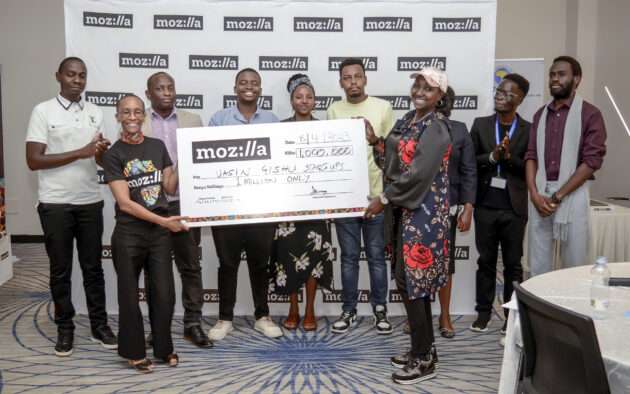Francis Kamanga spent most of his secondary school days in a Physics laboratory feeding his curiosity.
The 21-year-old student from Gearbox Academy, an industrial training college at Industrial Area, Nairobi, has turned his house into a workshop.
When Business Daily visited the site, hardware was neatly arranged in his two-room house that has been his creative space for the past two years.
He has created an automatic alarm system for detecting intruders at home or the workplace. Using a series of sensors, the system first calls the homeowner and then sends camera footage in case of attack.
The system uses infrared motion sensors to detect people or objects and sends the alert to a gadget. It triggers the alarm, bulbs light up and the camera is activated. Technically, infrared motion sensors work by detecting a change in the temperature of an area.
Read Also: Here are the winners of 2021 Young Scientists Kenya National Science and Technology Exhibitions
But the idea to create what he calls Skynet Kamanga Alarm was born in 2019 when he was in Form Three. At the time, some thieves destroyed his poultry business, and that became his eureka moment.
“In 2019, my chickens were stolen while I was away. I was helpless and decided to come up with a security system that would notify me immediately if there was an intruder,” he recalls.
He pitched the idea to his Physics teacher, Bernard Maina, who guided him in actualising it.
Mr Maina says that Kamanga initially wanted to create an automatic alarm door using radio waves.
“When he came up with the idea, I suggested that instead of having a radio, he could work out on a system that can make a call and sense motion,” the teacher explained.
Kamanga sourced raw materials from his family’s old house to make his first working prototype. He assembled used wires, bulbs and fuses and had the system running after six months. The original model was not making phone calls while the sound was low.
Read Also: Kenyans lead the world in peer to peer crypto trade
“Later on, I realised the model required an upgrade. I started working on a code that would command a phone call,” he said.
The advanced idea was presented at the sub-county level where he was the second-best, “activating my creative mojo.” A few weeks later, the Covid-19 pandemic hit Kenya and the government closed schools to control the spread of the virus that hit Kenya in March 2020.
The Physics teacher assisted him with the apparatus from the school where they would communicate regularly. He noted that Kamanga’s project, based at his Kerwa village, Kiambu County, inspired other students.
“Kamanga has set a major milestone in this school. Students more openly explore their talents while on their academic journey,” he added.
The cost of installing a single Skynet Kamanga alarm ranges from Sh15,000 to Sh20,000, depending on the area to be covered.
“It takes me one day to make a single model provided I have all the raw materials.
“I have spent more than Sh50,000 to fund this project. Most of the gadgets would be spoilt during trials but I never gave up,” explained the young creative, acknowledging that every day was a learning experience.
Read Also: This is what caused Outage in Facebook, Instagram & WhatsApp for 6 hours.
Later on, he installed motion detectors in all entrances to his parent’s home, securing their livestock too with information being sent to the main security system in the house.
All this was met with a lot of challenges, including capital that resulted in low production levels.
“I have had my fair share of setbacks. I lack funding to advance my project to the next level. I wish to establish it as a business,” he stated.
All was not lost. He received some funds and materials from ICT Cabinet secretary Joe Mucheru, when he visited him on October 7, 2020, at his home.
Kamanga is indebted to his family that is his main support with his father, Peter Njoroge, advocating for the protection of intellectual property.
“The Ministry of ICT together with the Kenya Copyright Board have a mandate to safeguard innovators work from plagiarism,” he stated, adding that Kamanga is on course to copyright his work.
early-stage deals
A report by the African Private Equity and Venture Capital Association Ltd (AVCA) published last June shows that Kenya is second in Africa in attracting venture capital, but Kamanga is yet to find a financier.
By value, deals in consumer discretionary (28 percent), financials (23 percent) and industrials (18 percent) attracted the largest share. The utilities sector was popular among early-stage deals, with investors supporting companies that provide alternative power solutions.
The government has initiated Startup Savanna, a Kenya Industry and Entrepreneurship Project, a platform through which start-ups can access a global network of events, accelerators, and incubators, mentors, investors, and corporate partners but a lack of awareness means innovators like Kamanga never get to know about it.




